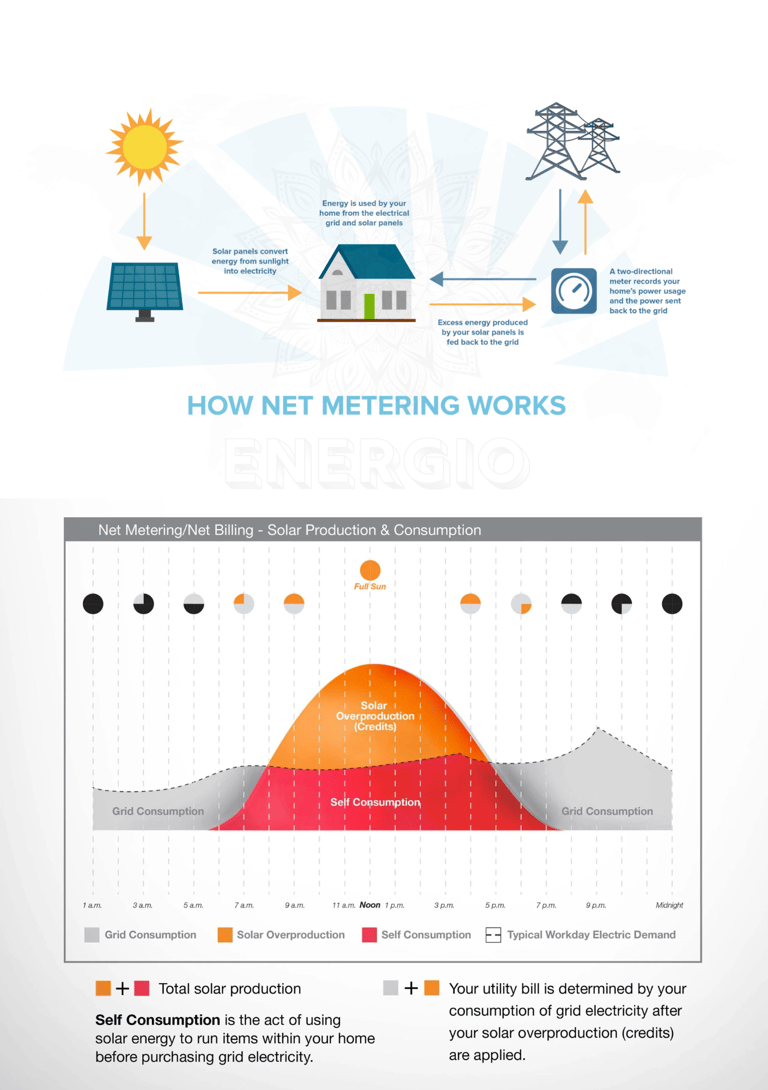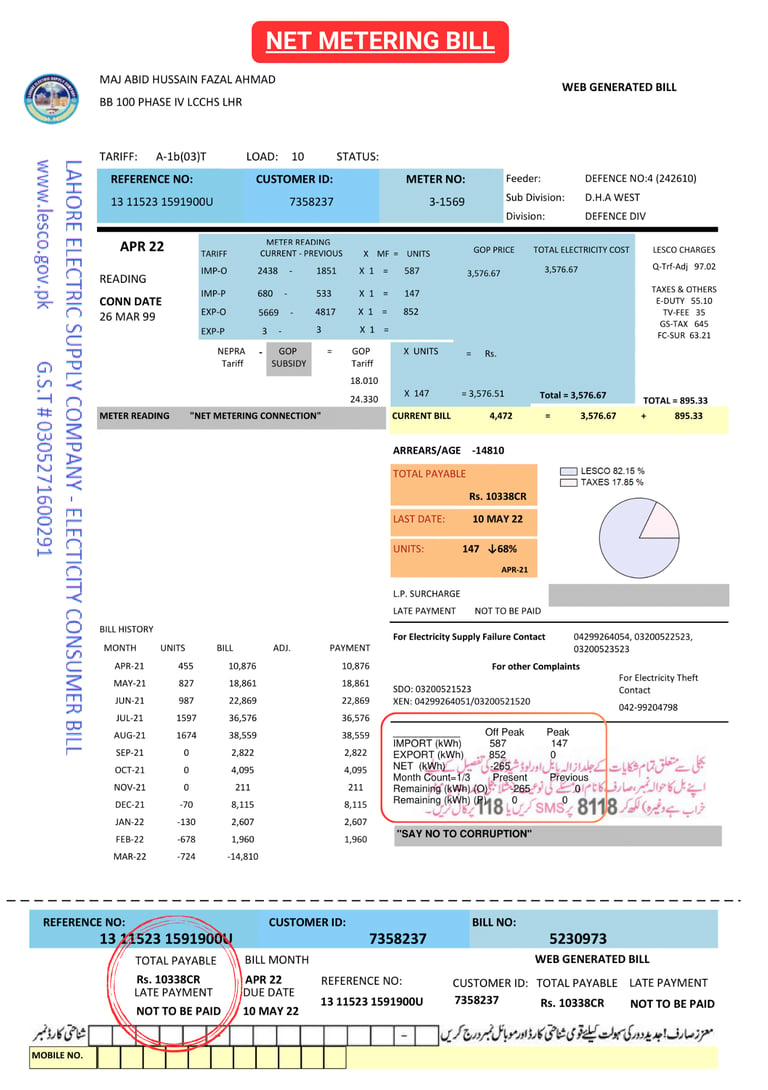Net Metering in Pakistan
What is Net Metering?
Net metering is an innovative billing system that allows consumers in Pakistan to generate their own electricity, primarily through solar panels, while remaining connected to the national grid. Introduced by the National Electric Power Regulatory Authority (NEPRA) in 2015, net metering enables consumers to receive credit for the surplus energy they produce and feed back into the grid.
Key Benefits for Consumers
Unit Against Unit
A primary feature of net metering is its unit-for-unit credit system. For instance, if a consumer exports 1,000 kilowatt-hours (kWh) of electricity to the grid and later imports 1,000 kWh, these amounts cancel each other out. This means that the rate at which energy is generated is the same as the rate at which it is consumed, providing consumers with substantial savings on their electricity bills.
Financial Savings
With net metering, households and businesses can significantly reduce their electricity expenses. By generating their own solar power, consumers can offset their consumption during peak hours, leading to lower monthly bills. The initial investment in solar technology can yield substantial long-term savings, making it a financially attractive option.
Energy Independence
Net metering allows consumers to take control of their energy needs. By generating their own electricity, they can reduce reliance on grid power, particularly in regions where power outages are common. This not only enhances reliability but also provides peace of mind, knowing they have a dependable energy source.
Environmental Impact
Adopting solar energy through net metering contributes to a greener environment by reducing the reliance on fossil fuels. As more consumers transition to renewable energy, the cumulative impact can significantly decrease greenhouse gas emissions, aligning with global sustainability goals.
Government Incentives
The Pakistani government supports the solar energy sector through various incentives, including tax exemptions and subsidies. These initiatives make the transition to solar energy even more attractive, allowing consumers to maximize their investment in renewable technologies.
Market Trends and Statistics
As of recent reports, Pakistan's solar market has seen exponential growth, with solar installations increasing significantly year over year. The country aims to generate 30% of its energy from renewable sources by 2030, with solar energy expected to play a pivotal role in achieving this goal. This growth is fueled by the rising demand for sustainable energy solutions and the decreasing costs of solar technology.
Financial Returns
Studies indicate that solar investments can yield returns on investment (ROI) of 15-20% annually, making solar power not only a sustainable choice but also a lucrative financial decision for consumers.
Conclusion
Net metering in Pakistan presents a unique opportunity for consumers to harness the power of solar energy while enjoying substantial financial benefits. With its straightforward unit-for-unit credit system, potential savings on electricity bills, and government incentives, net metering empowers individuals and businesses to invest in a sustainable future. As the solar market continues to expand, net metering will play an essential role in shaping the energy landscape of Pakistan.





